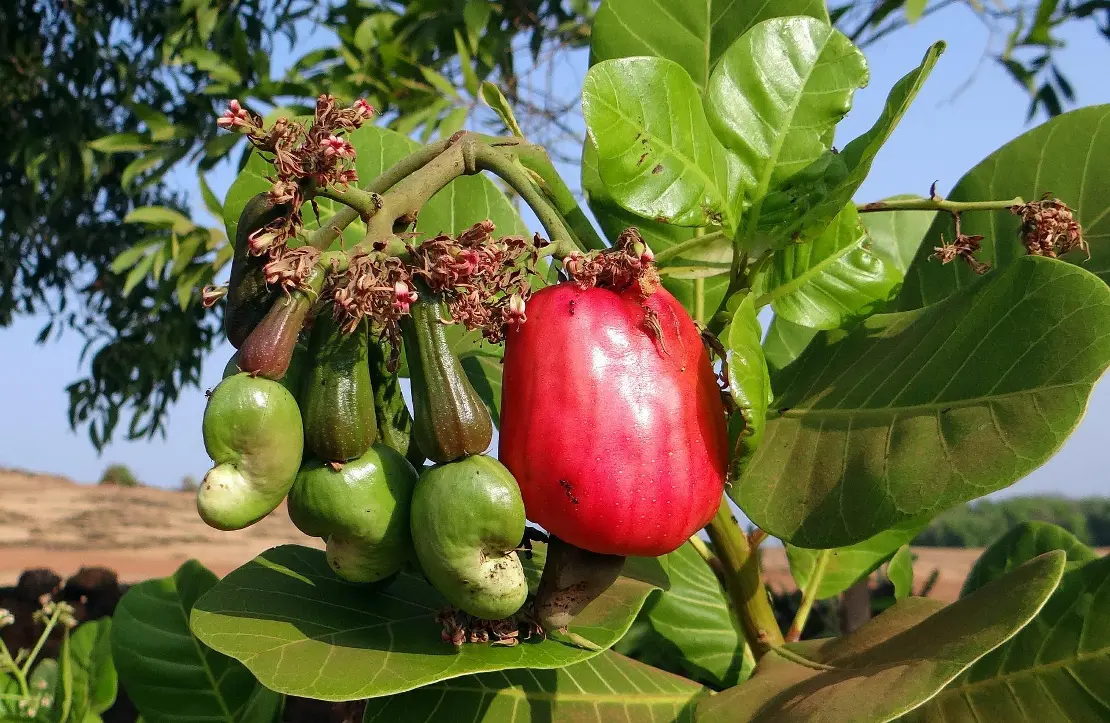BLOG
Indian Cashew Cultivation Is In Danger...

Maharashtra is a well-known agricultural state, where cashew cultivation plays a significant role in the economy. Cashews are primarily grown in the Konkan region, specifically in Sindhudurg district. In Konkan, cashew farming is a major source of income for the local population. The cashew season in Konkan typically runs from March to June. During this period, farmers sell raw cashew nuts to cashew factories for around Rs. 100 to Rs. 150 per kilogram, with some of the earnings used for annual horticultural activities. However, there is a concern looming over the cashew industry - there are signs indicating a potential decline in raw cashew prices in the near future. If this scenario unfolds, what will the farmers rely on for income? Will they be able to save enough for the next cultivation cycle? These uncertainties are currently a pressing issue.
The crisis at hand is directly tied to the dynamics of international trade, particularly in the realm of imports and exports. The escalating competition in the global market and the repercussions faced by cashew processing mills serve as clear indicators that the cashew cultivation sector is facing imminent threats. Presently, there is a noticeable shift towards sourcing raw cashews from African nations within the industry. This trend is primarily driven by the fact that the cost of raw cashew nuts imported from African countries ranges from Rs. 70 to Rs. 100 per kilogram. Owing to the cost-effectiveness and abundance of raw materials available from these regions, manufacturers are increasingly inclined towards utilizing imported raw materials from Africa. According to the Directorate General of Foreign Trade (DGFT), India imported a staggering 880,000 tonnes of raw cashew materials in the fiscal year 2020. Over the past few years, Vietnam has emerged as a dominant force in the global cashew export market, displacing India from its once-held position as the leading cashew exporter worldwide. Furthermore, the imposition of lockdown measures resulted in a 25% decline in India's cashew exports in 2020 compared to 2018, providing Vietnam with an opportunity to seize the lead. The downturn in international cashew prices has also adversely impacted Indian cashew traders.
Furthermore, the cashew crop in Maharashtra hails from the Konkan region of Sindhudurg district. These cashews are pricier than other cashews globally. This is because of their large size, dark white color, and excellent taste. The crop is extensively grown in Sindhudurg district. However, in recent years, the export of cashew nuts from Maharashtra has been on the decline. This is primarily due to the harmful effects of pesticides and chemical fertilizers used in cashew cultivation. Foreign countries are increasingly favoring organic products. If a product does not adhere to the regulations of these countries, it is excluded. Consequently, the unregulated use of chemicals and fertilizers is rampant in cashew plantations, resulting in a decrease in the popularity of Konkan cashews in the international market.
Amidst the ongoing crises, the central government has decided to revoke the special status granted to cashew exports. Effective June 14, 2021, the Cashew Export Promotion Council of India (CEPCI) was dissolved, and all its responsibilities were transferred to the Agriculture and Processed Food Products Export Development Authority (APEDA). In light of these developments, the State Department of Agriculture and APEDA must step in to offer proper guidance to farmers and promote the introduction of Konkan Cashews in the global market within the Cashew Production sector. Failure to do so raises the question of traceability, making it difficult to discern whether cashew nuts consumed in India originate from Konkan or Africa.